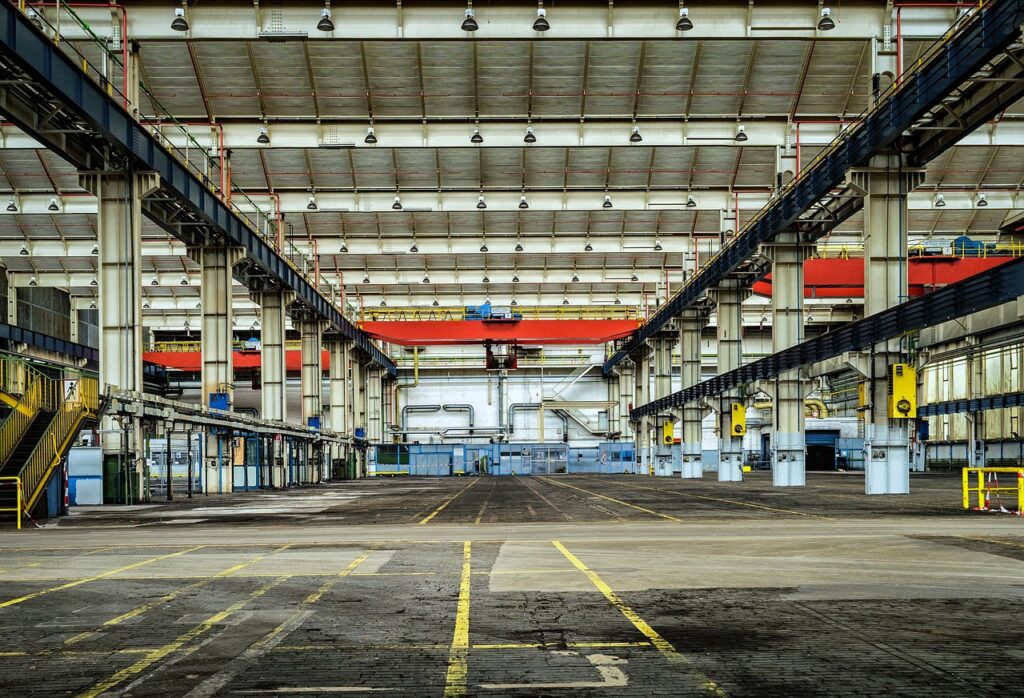According to a BDI survey, almost every sixth company in German industry relocates its production and jobs abroad. Companies attribute this, among other things, to high energy and labor costs that weigh on them (Wiwo: 05.06.23).
Industry lobby raises the alarm: companies in Germany are relocating production abroad
The President of the Federation of German Industries (BDI), Siegfried Russwurm, warned of the high costs and called for further relief from politicians. According to a quick survey of medium-sized industrial companies, 16 percent of the companies surveyed are already moving parts of their production and jobs abroad. Another 30 percent are seriously considering it. In order to enable more investments, the industry needs a noticeable reduction in bureaucracy and targeted tax cuts.

Although the prices for energy and raw materials have eased somewhat compared to the previous year, they remain one of the most pressing challenges for almost two thirds of the companies surveyed. According to Russwurm, the price of industrial electricity urgently needs to be reduced to a competitive level, otherwise industrial transformation is at risk.
The BDI expects the federal government to come up with a concept that can be implemented in concrete terms that will ensure a permanently secure energy supply at internationally competitive costs.
Deindustrialization in Germany: Politicians play it down, but companies sound the alarm
Top politicians such as Economics Minister Robert Habeck and Federal Chancellor Olaf Scholz play down the subject of deindustrialization. Habeck describes it as a mere catchphrase that does not do justice to reality. Scholz only sees scaremongering in the warnings about de-industrialization. But the politicians’ assessments contradict what is actually happening in many industrial companies.
The ifo Institute recently found that industrial structures in the automotive industry are being lost due to the switch to e-mobility. A survey of 120 managers who are responsible for the supply chains in industrial companies now confirms the general problem. 52 percent of the companies see the attractiveness of Germany as a business location at risk. 45 percent assess the risk of de-industrialization in Germany as high or very high.
Industrial companies in need – North America and Eastern Europe as top investment destinations
The results of the survey show how the industry is reacting to high energy and raw material prices, increasing bureaucracy and the lack of skilled workers. It also becomes clear in which countries the companies want to invest.
Managers are dissatisfied for a variety of reasons. According to the survey, energy policy is a particular burden for industrial companies. But managers are also concerned about the lack of skilled workers, extensive regulations such as the Supply Chain Due Diligence Act (LkSG) and wage agreements.
Florian Ploner, a consultant at Deloitte and author of the study, comes to the conclusion that the ongoing burdens on companies, particularly due to high prices, inflation and above all in Germany due to high energy prices, pose a risk for the location.
In the course of this development, many companies are looking to other regions. North America is the most attractive destination for investments (56 percent), followed by Eastern Europe (46 percent), Southeast Asia (29 percent) and India (21 percent).
According to the study, the United States, Poland, Vietnam, India and Brazil are the most frequently cited destinations for relocation. Less regulation and energy security (in North America), low labor costs and good infrastructure (in Eastern Europe) and cost advantages in production (in Southeast Asia) play a decisive role in this.
